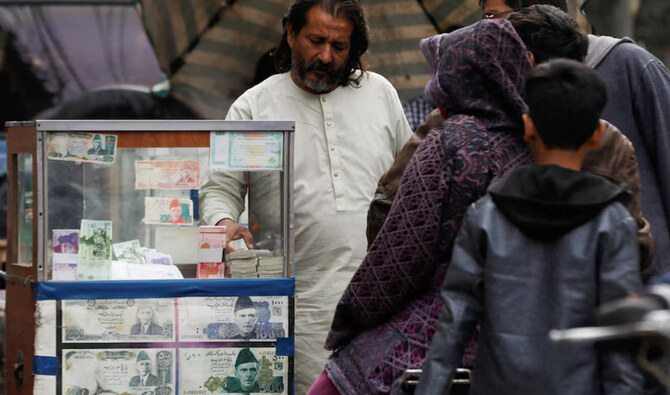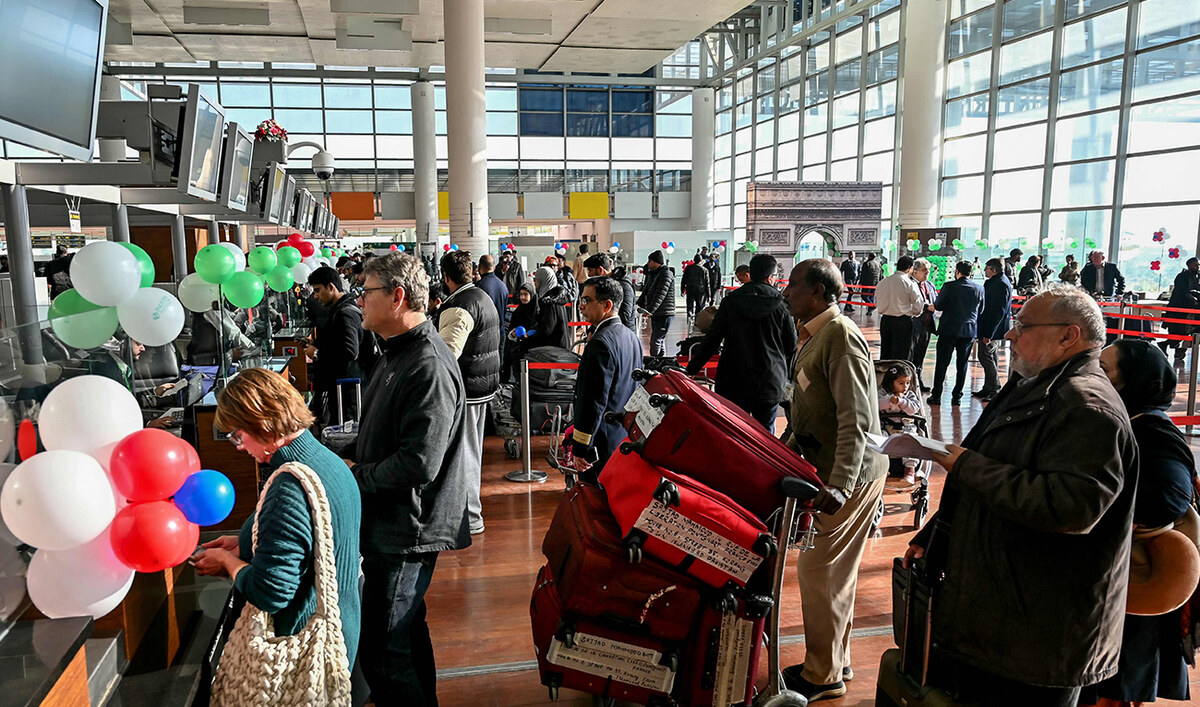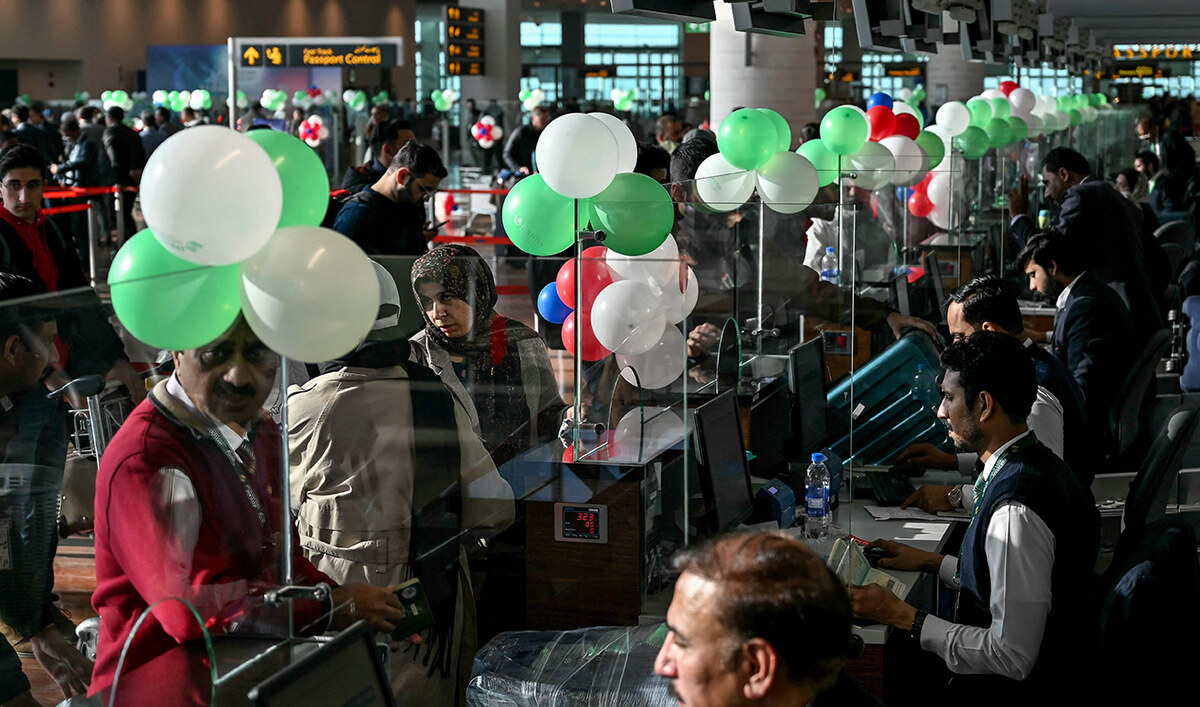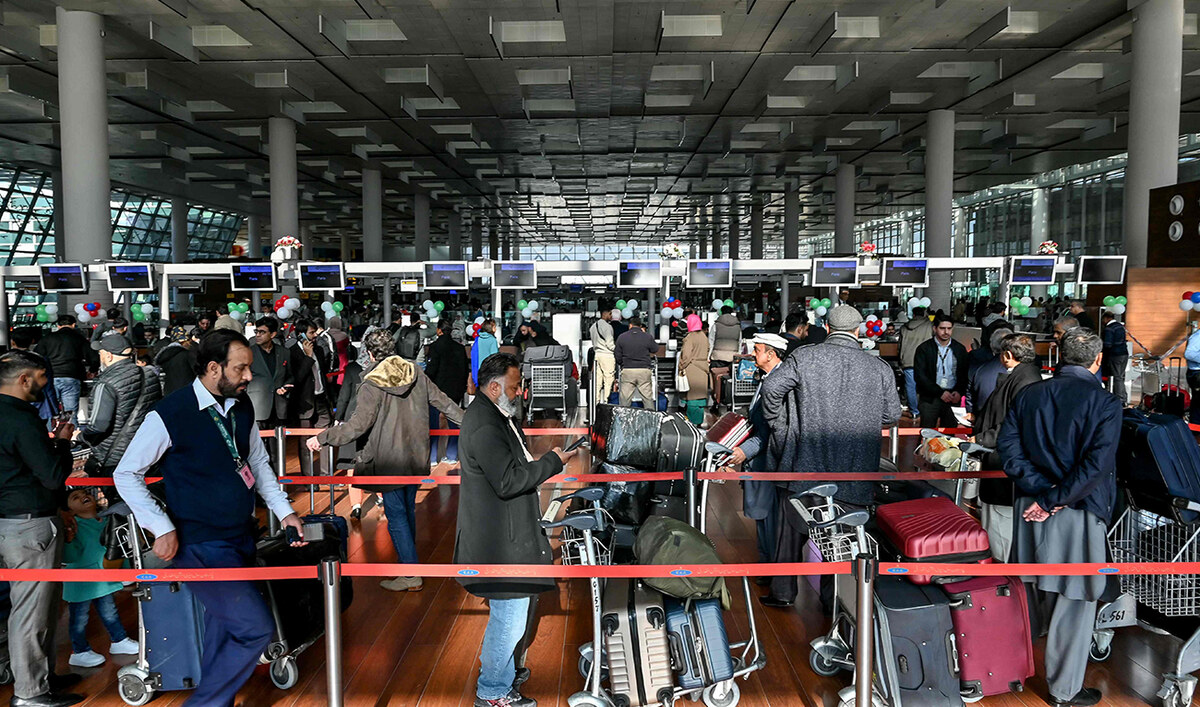KARACHI: Twenty women filmmakers from Pakistan’s Sindh and Balochistan provinces have been selected to receive arguably the country’s largest ever filmmaking grant, allowing women from remote parts of the country to tell their stories.
The one crore rupee “Stories from Southern Pakistan” funding and mentorship program is supported by a grant from the US Consulate in Karachi and is being run by Patakha Pictures, which is spearheaded by two-time Academy Award winning filmmaker Sharmeen Obaid-Chinoy. The Idara-e-Taleem-o-Aagahi (ITA) public trust is also a partner.
In a statement released on Tuesday, Patakha Pictures said this was their third filmmaking grant and the “largest” in Pakistan. It will enable 20 women filmmakers from Sindh and Balochistan to work in pairs and produce 10 short documentaries. Through online sessions, the participants will be mentored by filmmakers based in the United Kingdom and the United States.
“This is a wonderful opportunity for women hailing from Balochistan,” Mahwash Saeed, a single mother and development professional from Balochistan, told Arab News. “As filmmakers, this definitely is the very first initiative taken to promote women filmmakers.”
A strategic communication specialist in the development sector, Saeed has a degree in film production and has already made a number of documentaries, including one on pluralist faith practices in Balochistan that was shortlisted for a national award.
With the Patakha Pictures grant, Saeed will pair up with Saira Baloch to work on a documentary called Pehchaan, or Identity.
“In Balochistan, people are still living in strict tribal and social cultures where something out of the ordinary is rather abused or not accepted by society,” Saeed said about the upcoming film.
“The project is about the true identity of people and their struggle to survive in the strict cultural and tribal setup without being discriminated against or without having to protect their loved ones from being harmed.”
Zainab Younas, who says she is the first YouTuber from Quetta, also qualified for the grant with her co-applicant, Maryam Tanveer. The two will be working on a documentary called ‘DOCH, The Art of Balochistan,’ which will revolve around the struggles of a female entrepreneur who has managed to set up a successful business across Balochistan, selling traditional dresses and other items made with the help of women from her village.
“We want to show that women in Balochistan are not less [talented than anyone else],” said Younas, who is pursuing a master’s degree from a university in Lahore and has set up a small startup production house that she hopes to expand in order to teach filmmaking to kids in Balochistan.
Another grantee is Kainat Thebo from Sindh, who aims to use her documentary, ‘Made With Love,’ to highlight the role of women in folktales from Sindh.
“It is about the role of women, who are main characters in Sindhi folk stories and culture,” Thebo, 29, told Arab News on Tuesday.
Thebo, who hails from a small town in Sindh’s Naushahro Feroze district, is a film and TV graduate from the National College of Arts (NCA) and produces and teaches film at the Institute for Art and Culture in Lahore.
“The documentary also highlights women from Mehrabpur who make models from waste material for kids,” Thebo said. “I like to shoot films in Sindh and in our own language. Sindh has a rich culture and literature, and art is a powerful medium to tell stories.”

The picture posted on November 9, 2016, shows Filmmaker Kainat Thebo interacting with the locals in the Tharparkar district of Pakistan's Sindh province. (Photo courtesy: Kainat Thebo/Instagram)
Her recent documentary on pluralist faith practices in Balochistan was shortlisted for a national award. Under the grant, Saeed will work on a documentary called ‘Identity’ (Pehchaan) with her partner, Saira Baloch.
Saeed delved into the details of the project, saying that it would spotlight the challenges people living a dual life due face to cultural norms.
“In Balochistan, people are still living in strict tribal and social cultures where something out of the ordinary is rather abused or not accepted by society,” Saeed explained.
“The project is about the true identity of the people and their struggle to survive in the strict cultural and tribal setup without being discriminated against or without protecting their loved ones from being harmed,” she added.
She said it may not be the first time women from Balochistan are making their mark in any field but that “as filmmakers, this definitely is the very first initiative taken to promote women filmmakers.”
Zainab Younas, who says she is the first YouTuber from Quetta, is an aspiring filmmaker who also qualified for the grant with her co-applicant, Maryam Tanveer. The two will be working on a documentary called, ‘DOCH, The Art of Balochistan’.
This documentary will revolve around the life of a female entrepreneur, Ms. Deedar, who hails from Balochistan’s capital city Quetta. Deedar, according to Younas, struggled to pursue her passion and turned it into a business that helped empower other women financially.
Deedar makes cultural dresses and other items made with the help of women in her village. She began her business in Quetta and expanded her operations to multiple locations in Balochistan’s different districts.
“We want to show that women in Balochistan are not any less,” Younas told Arab News on Tuesday.
She is currently pursuing a master’s degree in film and TV from the Beaconhouse National University, Lahore, and at the same time, producing content in the form of vlogs and documentaries.
“We can’t upload everything online due to permission issues but we keep it with us for our portfolio,” Younas added. She has set up a small startup, a production house/film school that she wishes to expand and teach filmmaking to kids in Balochistan.

YouTuber and aspiring filmmaker Zainab Younas is seen recording a vlog for her YouTube channel at Meezan Chowk in Quetta in 2019. (Photo courtesy: Zainab Younas)
The grant program has been launched in partnership with Idara-e-Taleem-o-Aagahi (ITA) and the US Consulate General Karachi. Mentors for the program include Noe Mendelle (member of the Academy of Motion Picture Sciences, and Director of the Scottish Documentary Institute) and Jesse Ericka Epstein (Sundance Award-Winning documentary filmmaker, and VMA Affiliated Faculty, Emerson College).
As part of the program, participants will join online practical documentary sessions for eight months. During the sessions, they will explore creativity in the art of producing documentaries for the international film festival market.
Kainat Thebo from Sindh is another filmmaker who aims to highlight the role of women in folktales from Sindh. Her documentary, ‘Made With Love’, is part of the grant program.
“It is about the role of women, who are main characters in Sindhi folk stories and culture,” Thebo, 29, told Arab News on Tuesday.
Hailing from Mehrabpur, Naushahro Feroze district in Sindh, Thebo is a Film and TV graduate from the National College of Arts (NCA). She produces and teaches film at the Institute for Art and Culture in Lahore.
“The documentary also highlights women from Mehrabpur who make models from waste material for kids,” Thebo said. “I like to shoot films in Sindh and in our own language. Sindh has a rich culture and literature, and art is a powerful medium to tell stories,” she added.
Consul General Nicole Theriot from the US Consulate in Karachi hopes participants use their films as a platform to raise awareness on social issues. He hoped their films would call attention to the struggles of everyday people, challenge assumptions and highlight critical new ways of thinking.
“The US government [has] funded this grant because Americans value the empowerment of women and they are having equal opportunity for economic inclusion,” Theriot was quoted in a press statement.



















